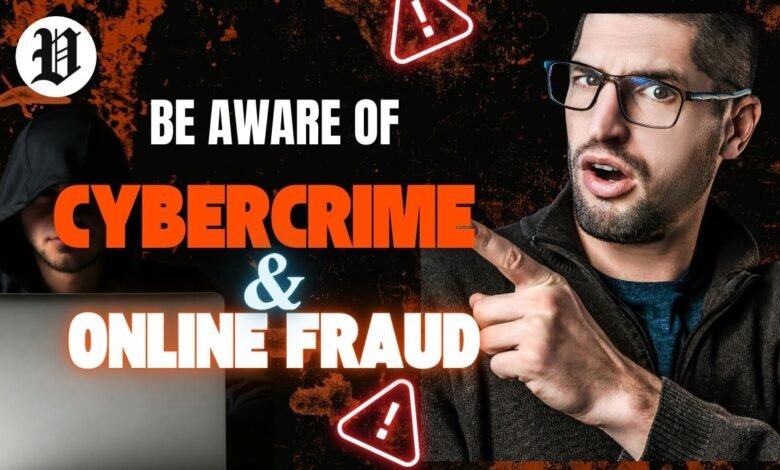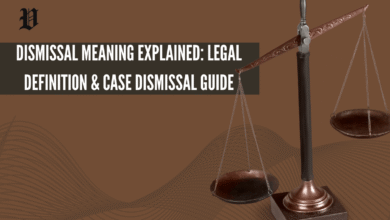Cybercrime and Online Fraud in Las Vegas: Legal Protections and Responsibilities

Las Vegas has always been this whirlwind of lights, luck, and endless energy, right? But these days, with everyone betting online, booking shows through apps, and swiping cards for just about everything, the bad guys have found a new playground. Cybercrime’s spiking here because of all those digital casinos, tourist sites, and quick transactions that make the city tick. I mean, think about it—tourists get hit with fake hotel deals, locals deal with sneaky emails pretending to be from big resorts, and businesses face hacks that could shut them down. It’s not just numbers on a screen; last year alone, reports showed Nevada dealing with way more incidents than most places, putting everyone on edge.
That’s why wrapping your head around the legal side matters so much. Whether you’re a local grinding through daily life, a visitor chasing that Vegas magic, or a business owner keeping the Strip alive, knowing what protections are out there can save you from a world of hurt. It’s like having an ace up your sleeve in a game where the house doesn’t always win.
Types of Cybercrime and Online Fraud in Las Vegas
The crooks here are crafty, preying on the city’s vibe of fast money and fun. Identity theft is huge, where someone snags your details and starts living large on your dime. Phishing’s another big one—those emails that look oh-so-real, like a casino promo, but they’re just after your info. Then you’ve got straight-up scams, from fake investments to hackers breaking into systems. Businesses, especially hotels and gaming spots, get slammed with ransomware that locks everything up until they pay.
Here’s a breakdown to make it clearer:
| Type of Cybercrime | Description | Common Targets | Example Cases |
|---|---|---|---|
| Identity Theft | Grabbing someone’s personal info to commit fraud, like opening accounts or charging stuff. | Everyday folks and visitors on public networks or apps. | A guy here lost thousands when his details got swiped from a bogus loyalty sign-up. |
| Phishing | Tricky messages faking trusted brands to steal logins or card numbers. | Tourists booking stays and local businesses. | Fake emails from big resorts tricked people into giving up their credit info for “deals.” |
| Online Scams | Cons like romance tricks or phony investments promising easy cash. | Seniors and out-of-towners on social media. | The classic “family emergency” call that drains savings from retirees. |
| Hacking/Ransomware | Breaking into networks to steal data or demand ransom. | Casinos and small shops. | That massive resort hack a couple years back that messed up reservations and cost a fortune. |
Stuff like this happens more than you’d think, thanks to all the digital buzz in town.
Legal Protections Against Cybercrime in Nevada
Nevada’s got some solid rules to fight back, because let’s face it, the state’s livelihood depends on people feeling safe. State laws treat hacking as a serious crime, with jail time and big fines for anyone messing with computers without permission. There are also rules making companies tell you if your data gets leaked, so you can act fast. On the federal level, things like laws against computer fraud kick in, and agencies team up to enforce them. Locally, the attorney general pushes for tougher measures.
These protections help regular people sue if a company slacks on security, and they force businesses to step up their game with things like data encryption. It’s all about creating a shield for everyone involved.
People also see: Civil Cases Explained: Lawsuits, Examples & Modern Trends
Responsibilities of Residents and Businesses
You can’t just rely on the law, though—you’ve gotta do your part. For folks like you and me, it’s about basics: mix up those passwords, turn on extra login steps, and don’t click shady links. Businesses need to train staff and beef up their tech to keep customer trust intact.
Check out these key steps:
| Responsibility | Who Should Take Action | Tips |
|---|---|---|
| Strong Passwords and Extra Security | Everyone | Use a mix of characters, avoid repeats, and add two-factor wherever you can—password apps help. |
| Update Everything Regularly | Individuals and companies | Don’t skip those software patches; they fix holes hackers love. |
| Safe Transactions | Mainly businesses, but you too | Stick to secure sites, skip public Wi-Fi for money stuff, and use protection like firewalls. |
| Education and Training | Businesses | Run sessions on spotting fakes and what to do if something’s off. |
| Watch and Report | All of us | Keep an eye on accounts, use monitoring tools, and flag weirdness right away. |
It’s straightforward stuff, but it really cuts down the risks.
How Law Enforcement Handles Cybercrime in Las Vegas
When trouble hits, the cops here don’t mess around. The local police have a special cyber team that works with feds like the FBI for the big stuff. State’s got units coordinating defenses, and they all share info to track patterns.
If you’re a victim, report it quick—call the metro police or use their online form. For scams, there’s a national complaint center online. The sooner you speak up, the better chance of nailing the crooks.
Emerging Threats and Trends
Things are getting wilder with tech. Scams using AI to make fake voices or emails that seem too real are on the rise. Ransomware’s targeting the tourism scene hard, locking up casino systems for crypto payoffs. And don’t get me started on cryptocurrency cons—Vegas sees a ton of fake investment schemes that disappear with your money.
Staying ahead means keeping an ear to the ground on this evolving mess.
People also see: Guide to Nevada Small Claims Court: Las Vegas, Reno, Clark County
FAQs
What are the most common cybercrimes in Las Vegas?
Phishing, identity theft, and scams tied to tourism and gambling.
How does Nevada law protect residents from online fraud?
Through felony charges for hackers and requirements for companies to notify about breaches.
What should I do if I fall victim to an online scam in Las Vegas?
Report to local police immediately, freeze your credit, and contact banks.
Are online casinos legally required to secure their users’ data?
Yes, under state and federal rules mandating encryption and breach reporting.
How do federal and state laws interact to fight cybercrime in Nevada?
They overlap—state handles local enforcement, feds bring broader tools and penalties.
What steps can businesses take to prevent cyberattacks?
Train staff, update systems, use firewalls, and run regular security checks.
How can tourists protect themselves from online scams when visiting Las Vegas?
Use secure Wi-Fi, verify sites before paying, and avoid unsolicited deals.
What role do credit monitoring and identity theft protection services play?
They alert you to suspicious activity early, helping limit damage.
Are cryptocurrency transactions more vulnerable to cybercrime in Las Vegas?
Often yes, due to scams promising quick gambling wins in crypto.
How is law enforcement evolving to combat AI-driven cyber threats?
By training on new tech, partnering with experts, and using AI tools themselves.
In the end
Look, Vegas is all about the thrill, but cyber stuff doesn’t have to ruin it. Arm yourself with the laws on your side, stay sharp with those simple habits, and don’t hesitate to report junk. It’s empowering, really—take control, and you’ll enjoy the city without the worry. Stay safe out there; the real fun’s in playing smart.




